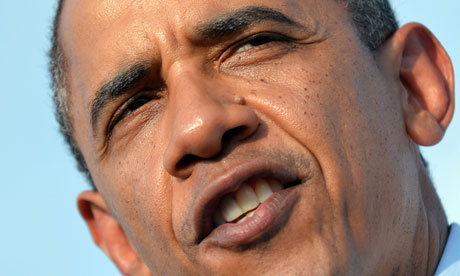
On the eve of the 2008 US primary campaign, I wrote an Observer piece about "the most open, volatile (and exciting) race [for Republicans and Democrats] in years".
Republicans were split between Romney, Giuliani and the maverick outsider, John McCain. Democrats had a choice between Hillary Clinton, John Edwards and the more or less unknown Barack Obama. For both parties, the race was so close that, as I put it, "even a book could make a difference".
So I sat down and read – well, skimmed – 14 campaign memoirs. It was not an uplifting experience.
What, you might ask, did you think? Indeed, what do books have to do with politics? The interesting thing is that, in the US, quite a bit. Almost all presidential contenders publish some autobiography or other, to tell their "personal story".
Some 13 of these titles, many of them ghosted, made grim reading, a horrible mixture of posturing, tubthumping and outright mendacity. Even Clinton's Living History was a big disappointment.
But there was an exception. The unknown Barack Obama was the author of not one, but two, bestselling titles: Dreams from My Father (1995) and The Audacity of Hope (2006). I described the former as "fearless, moving, and beautifully written", and the latter as possessing "authenticity and freshness", even though it had obviously been put together in a hurry for the campaign.
About Obama's writing, I wrote he had a gift for language "equal to Jefferson, Kennedy and, yes, Lincoln". That was too much, of course – in those heady days, hyperbole and Obama went together like ham and eggs – but I'm not ashamed to recall that I tipped Obama as one who "may yet be in their company". Perhaps, I said in the New Year of 2008, "the American people will decide that Barack Obama should be the next resident of the White House".
A year later, he was.
Obama campaigned in poetry, and gave the American people both a vision and a narrative. But he governed in prose and, despite some notable achievements, failed to find a presidential language to equal his campaigning rhetoric. Obama's words of hope – "Yes, We Can" – were simple and uplifting, universally intelligible and plugged into the American Dream. He moved people to tears, but only as a candidate. As president, the tears have been of frustration.
Obama's Rose Garden comments and his presidential-bully pulpit speeches have occasionally soared – for example, after the assassination attempt on Arizona congresswoman Gabrielle Giffords. In general, however, Obama has not managed, or perhaps not bothered, to sell his presidency in the way he sold his campaign – on a thermal of uplifting prose. Possibly, the reality of power was too complex, or too absorbing, to be reduced to the kind of narrative that plays well to the American people. That was Bill Clinton's gift. Obama did not master it.
For four years, then, Obama the writer became lost in the travails of Obama the Democrat politician. His absolute low point, rhetorically speaking, was the Denver debate in which he appeared bored, listless, irritated and unfocused. It was almost as if he knew that campaign poetry was a blind alley he would not go down again.
But his gifts as a writer and a speaker remain. His response to superstorm Sandy shows he can still rise to the occasion, with thrilling language. That, I think, is why Europeans especially cherish him. I am probably not alone in wondering what his presidential memoirs will be like, when the time comes to put pen to paper.
Today, thankfully, it looks as if that moment is still four years away. On the eve of his probable re-election, as one of his English admirers, who has not had to live in the poisoned atmosphere of Tea Party America, I hope that, in a second term, in the service of "common hopes and common dreams", he will remind us that literature and politics can become bipartisan allies, not bitter adversaries. Yes, it would be nice to see a bit of poetry in the president's second term. It would be nice if Obama would devote some time to giving some rhetorical uplift to the gritty business of everyday life.

